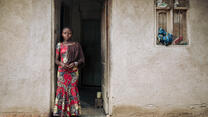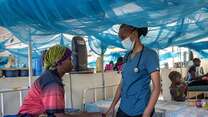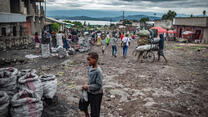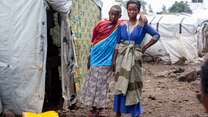
On August 1, a new outbreak of Ebola was declared in Beni, in the Democratic Republic of Congo’s North Kivu province. North Kivu is an active conflict zone where over one million people have been uprooted from their homes by continuous fighting. The province has insufficient health facilities and extremely low standards of living.
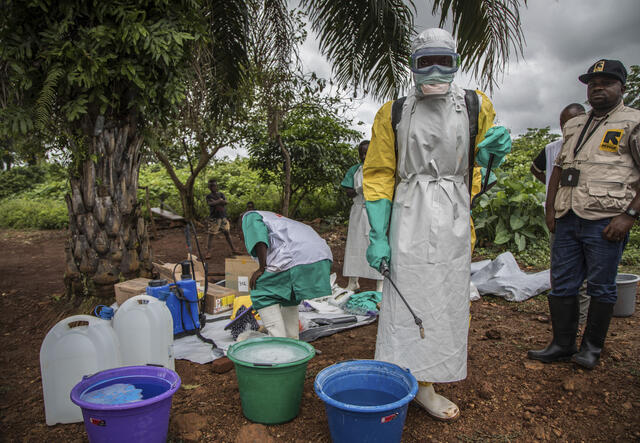
Congo has been vulnerable to deadly epidemics in the past. What makes this outbreak especially dangerous is the flow of refugees from North Kivu into bordering countries, including Uganda, Burundi and Tanzania. With 194 cases and 120 deaths, the outbreak has already spread to the Congolese towns of Beni, Butembo, Oicha, and Musienene--and shows no sign of abating.
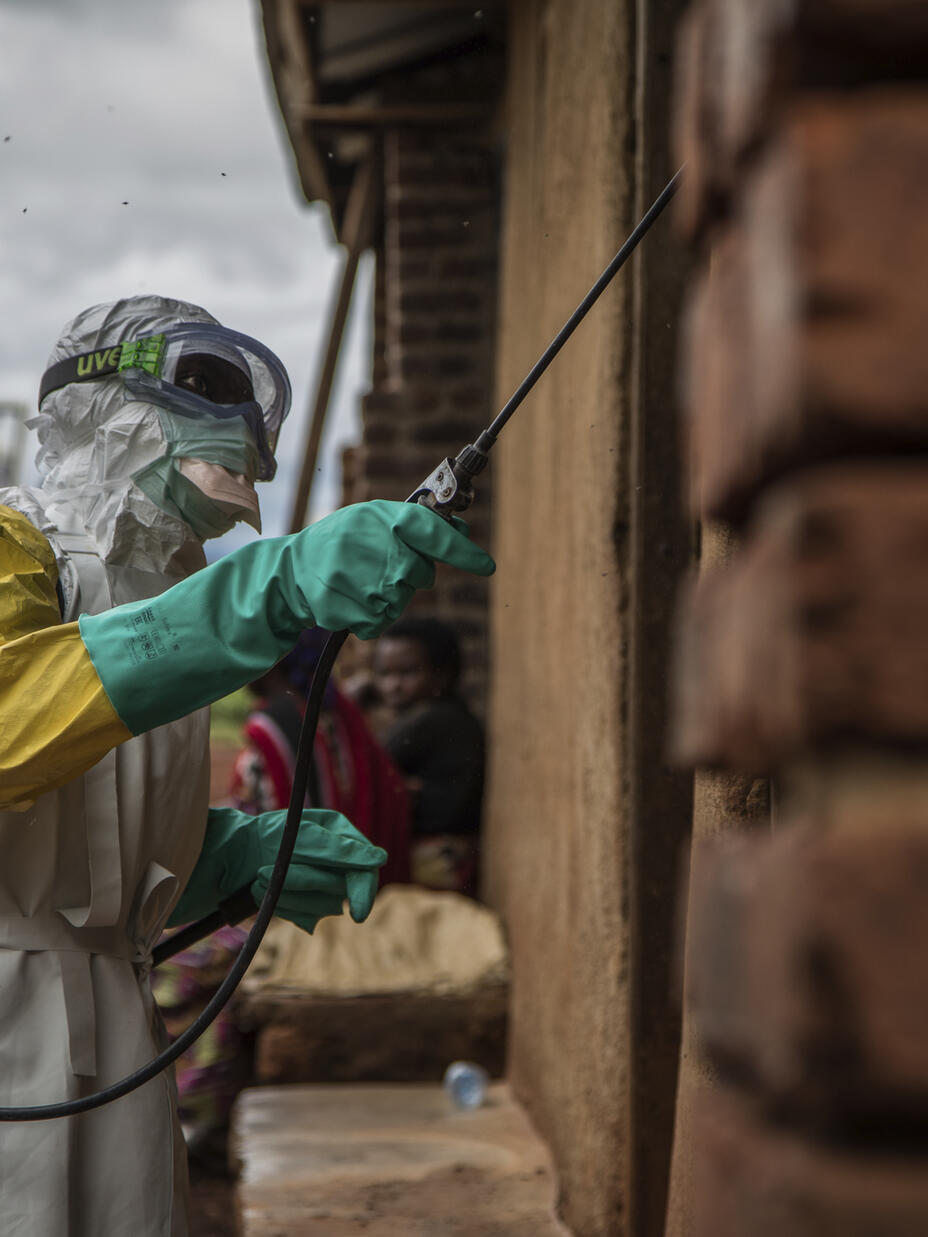
Health experts, including the IRC’s trained professionals, are struggling to contain what is threatening to become the worst outbreak of Ebola the region has ever seen.
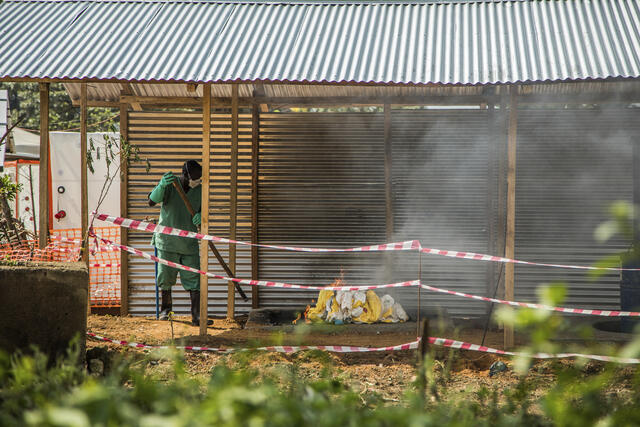
The IRC has been training the staff at 37 local health facilities to recognize the symptoms of Ebola and safely triage and transfer patients to Ebola treatment centers, helping to teach Ebola prevention, isolate and treat the sick, and vaccinate those exposed to the virus. However, resistance in the local communities to the treatment centers poses a serious threat.
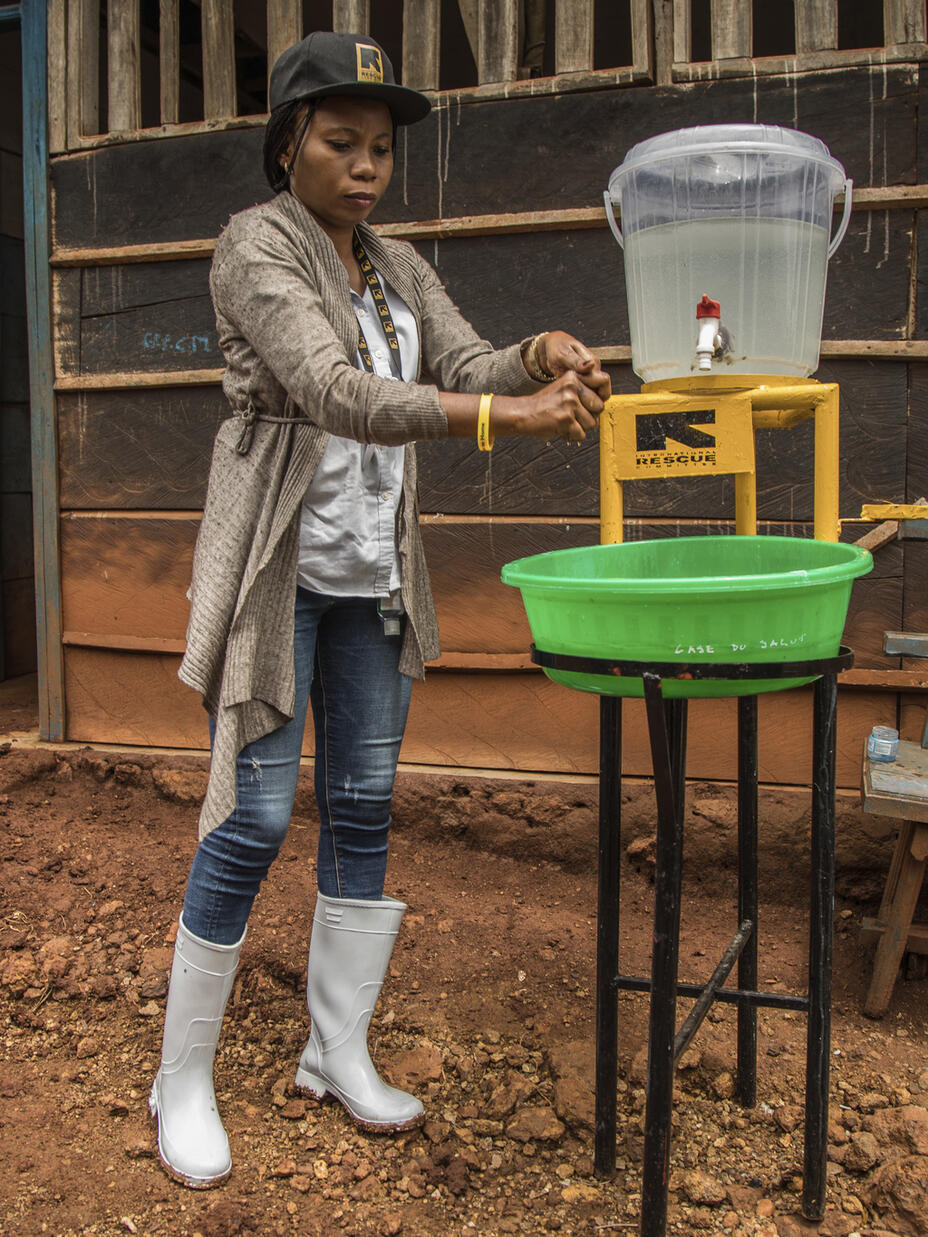
“I am very concerned that people are afraid to get treatment, says Dr. PiliPili Raphael of the IRC-supported Case Du Salut Medical Center," describing the panic in local communities where many people fear they will die if they are taken to an Ebola treatment center.
“Patients are very afraid of the disease.”
Ebola cases spike
The number of new Ebola cases each day has more than doubled since the start of October, likely influenced by recent violence that forced a temporary suspension of Ebola response programs.
IRC teams in Congo are deeply concerned that the number of new cases could continue to escalate.
Learn more
Read more about the IRC's Ebola response and our work in the Democratic Republic of Congo.
